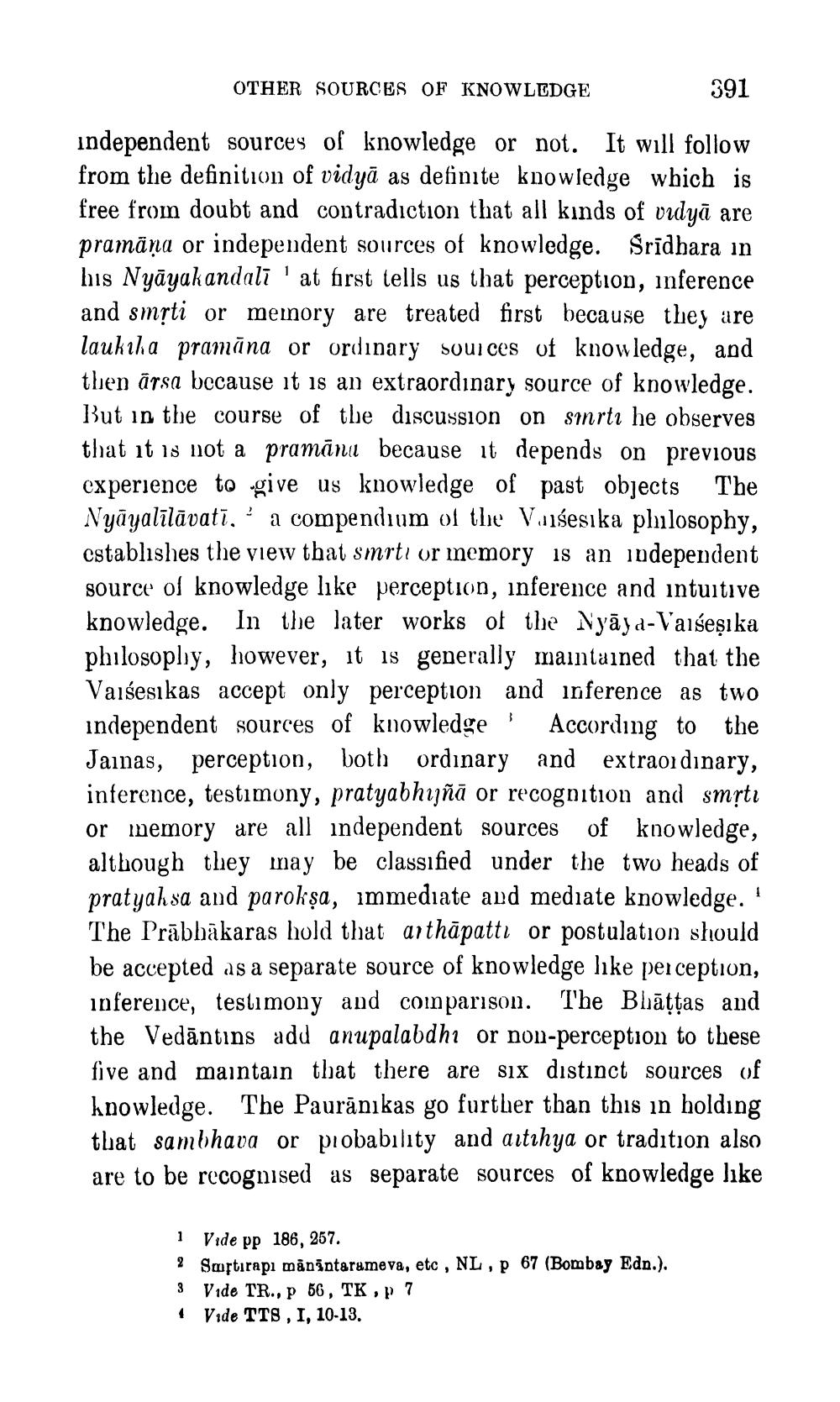________________
OTHER SOURCES OF KNOWLEDGE
391
1
independent sources of knowledge or not. It will follow from the definition of vidya as definite knowledge which is free from doubt and contradiction that all kinds of vidya are pramana or independent sources of knowledge. Śrīdhara in his Nyayakandali at first tells us that perception, inference and smrti or memory are treated first because they are laukila pramāna or ordinary sources of knowledge, and then arsa because it is an extraordinary source of knowledge. But in the course of the discussion on smrti he observes that it is not a pramānu because it depends on previous experience to give us knowledge of past objects The Nyayalilavati. a compendium of the Vaisesika philosophy, establishes the view that smrti or memory is an independent source of knowledge like perception, inference and intuitive knowledge. In the later works of the Nyaya-Vaiseṣika philosophy, however, it is generally maintained that the Vaisesikas accept only perception and inference as two independent sources of knowledge According to the Jainas, perception, both ordinary and extraordinary, inference, testimony, pratyabhijñā or recognition and smṛtı or memory are all independent sources of knowledge, although they may be classified under the two heads of pratyahsa and parokṣa, immediate and mediate knowledge. The Prabhakaras hold that arthapatti or postulation should be accepted as a separate source of knowledge like perception, inference, testimony and comparison. The Bhaṭṭas and the Vedantins add anupalabdhi or non-perception to these five and maintain that there are six distinct sources of knowledge. The Paurānikas go further than this in holding that sambhava or probability and aitihya or tradition also are to be recognised as separate sources of knowledge like
3
1
1 Vide pp 186, 257.
2 Smrtırapi manintarameva, etc, NL, p 67 (Bombay Edn.).
3 Vide TR., p 56, TK, p 7
Vide TTS, I, 10-13.




